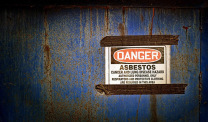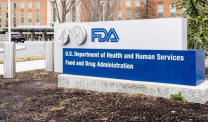Study: Those Exposed to Asbestos Should Not Take Beta-Carotene
Asbestos Exposure & BansWritten by Tim Povtak | Edited By Walter Pacheco

Taking beta-carotene health supplements could increase the risk of lung cancer or death from cardiovascular disease for anyone who is regularly exposed to asbestos, according to a panel of medicine experts.
Based on existing scientific evidence, the U.S. Preventive Services Task Force concluded recently that the potential harms of beta-carotene supplements outweigh any benefits, particularly for those with occupational exposure to asbestos.
The task force, an independent group of medical volunteers, makes recommendations about clinical preventive services. In the same report, it also said vitamin E provided no benefit in preventing lung cancer or cardiovascular disease, rejecting a long-held belief.
Both beta-carotene and vitamin E are popular antioxidants taken for their potential health and anti-aging benefits. They are known for their ability to combat oxidative stress and inflammation, common contributors to heart disease and various cancers.
“The most serious harm identified was increased cardiovascular disease mortality and increased risk of lung cancer in persons who smoke, or had workplace asbestos exposure, associated with beta-carotene supplementation,” the report stated.
Beta-Carotene Warning Comes from Credible Source
The well-respected task force, which is not government affiliated, includes doctors from Harvard Medical School, Mayo Clinic, Albert Einstein College of Medicine and Tufts University School of Medicine, among others.
Before publishing its final recommendation statement on June 22 – which was an update to one made in 2014 – the task force reviewed an additional six clinical trials involving beta-carotene and nine trials with vitamin E.
Asbestos exposure by itself can lead to serious health problems, including mesothelioma cancer, asbestosis or lung cancer. Asbestos is a naturally occurring mineral that was once used ubiquitously for its ability to resist heat and strengthen most anything with which it was mixed. Unfortunately, it also is toxic when its microscopic fibers are inhaled or ingested.
Workplace exposure, although not as common today as it was decades ago, still occurs in construction, shipyards and renovation projects. Asbestos is especially prevalent in older structures, both commercial and residential.
Asbestos Disease Has Long Latency Period
The effects of workplace exposure to asbestos may take years to develop. It can take 20 to 60 years after exposure to airborne asbestos before mesothelioma or lung cancer is diagnosed, which puts many retirees at higher risk today if they are taking beta-carotene dietary supplements.
“For many of the vitamins and nutrients reviewed, there was little evidence of serious harms,” the authors wrote. “However, an important harm of increased lung cancer incidence was reported with the use of beta-carotene by persons who smoke tobacco or have occupational exposure to asbestos.”
Cardiovascular disease and cancer are the two leading causes of death annually in the U.S. Together, they account for almost half the deaths in the country each year, becoming the focus of this wide-ranging review of supplements by the USPSTF.
The U.S. Food and Drug Administration does not have the authority to regulate dietary supplements for safety and effectiveness like it does with drugs.
“The U.S. Preventive Task Force concludes with moderate certainty that harms of beta-carotene supplementation outweigh the benefits for the prevention of cardiovascular disease or cancer,” the study concluded.






